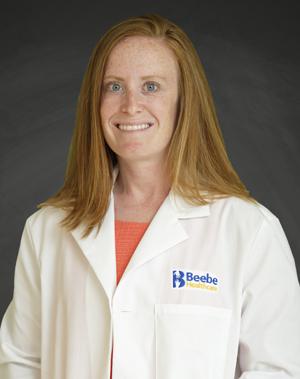Stomach pain? Could it be IBS?
Irritable bowel syndrome is a complex medical problem that can cause a significant decrease in your quality of life.
IBS is a gastrointestinal disorder that affects 10-15 percent of the U.S. population. It is more common in women, but can affect individuals of both genders and all ages.
IBS is characterized by many different symptoms including abdominal pain (the most common), constipation, diarrhea, bloating, nausea and vomiting. Because of the mixed symptoms that can present as IBS, treatment options vary.
In order to diagnose IBS, other diseases must first be ruled out: sometimes with blood work, often through imaging of the abdomen, and sometimes with endoscopic procedures such as a colonoscopy or upper endoscopy. Some diseases that can mimic IBS include inflammatory bowel disease, bacterial infections, colon cancer, celiac disease and thyroid disease. These exhibit more concerning symptoms including rectal bleeding, weight loss and low blood counts, which are not normally associated with IBS. IBS does not lead to an increased risk of cancer.
Experts believe there may be more than one cause for IBS symptoms. Possible contributors to IBS may include altered gut immune activation, bile acid malabsorption and diet. Altered gut immune activation refers to a change in the balance of good and bad bacteria in the colon and small intestine. Bile acid malabsorption occurs when there is an increased production of bile acid by the liver which leads to irritation in the colon and less time for the colon to reabsorb water, which ultimately leads to diarrhea. Dietary choices can affect the gastrointestinal tract in the form of allergies, intolerances, exaggerated responses to food ingestion and interactions with the bacteria in the intestines.
The treatment of IBS is largely a matter of managing the symptoms. The first treatment options should be as conservative as possible to try to avoid expensive, long-term medications with potential side effects.
If you suspect you might have IBS, you should start keeping a food journal. Write down everything you eat and drink, and how you feel afterward. If you notice a pattern of IBS symptoms after certain types of food or drink, you can start to gradually eliminate those items.
If a specific food trigger is not identified, the next step is to try a low FODMAP (fermentable oligo-saccharides, di-saccharides, mono-saccharides and polyols) diet, which serves as an intermediate step in identifying food triggers. It is a very restrictive diet which cuts out complex carbohydrates. It is best to consult with a registered dietician prior to starting this type of diet to ensure that it is done correctly. A gluten-free diet is not recommended for the treatment of IBS.
After about six weeks, foods are slowly reintroduced into the diet. After careful review of the diet, psychological interventions such as counseling and exercise have been shown to improve IBS symptoms: For example, counseling in the form of cognitive behavioral therapy to help patients monitor their GI symptoms, their precursors and the consequences; muscle relaxation to decrease the hormonal response and increase control; worry control; flexible problem solving to manage stressors that exacerbate symptoms; and relapse prevention training. Exercise works through stress relief, release of antioxidants and endorphins, and improvement in gut motility. Exercises such as walking, yoga and swimming are ideal for IBS.
Medication options for IBS are aimed at the main symptom. They can include peppermint oil, fiber, minimally absorbed antibiotics, anti-nausea medications, anti-diarrheal medication, laxatives, anti-spasmodics and anti-depressants. Probiotics are not currently recommended in treatment for IBS but may be an option based on your particular symptoms. There has been much research into alternative therapy including acupuncture, yoga, hypnosis, meditation and physical therapy, which also may help alleviate symptoms.
It is important to note that therapy is tailored specifically for each patient and is often a collaborative effort between the physician and patient. IBS is not a disease that can be cured; however, it can be managed to achieve minimal symptoms. There are many great resources available including informative websites, symptom and food tracking applications for your phone, and support groups that you will discover when meeting with your GI doctor.





















































